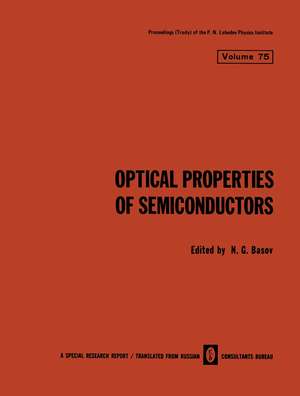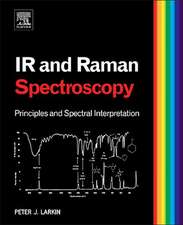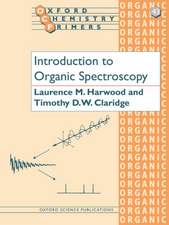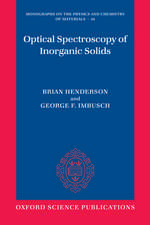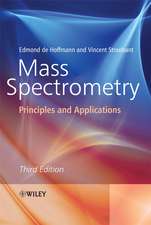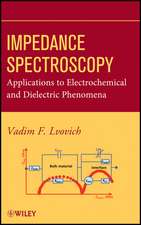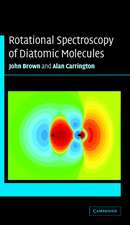Optical Properties of Semiconductors: The Lebedev Physics Institute Series, cartea 75
Editat de N. G. Basoven Limba Engleză Paperback – 2 iun 2012
Din seria The Lebedev Physics Institute Series
-
 Preț: 394.12 lei
Preț: 394.12 lei -
 Preț: 400.65 lei
Preț: 400.65 lei -
 Preț: 389.70 lei
Preț: 389.70 lei -
 Preț: 393.35 lei
Preț: 393.35 lei -
 Preț: 389.70 lei
Preț: 389.70 lei -
 Preț: 382.57 lei
Preț: 382.57 lei -
 Preț: 380.84 lei
Preț: 380.84 lei -
 Preț: 386.39 lei
Preț: 386.39 lei -
 Preț: 371.26 lei
Preț: 371.26 lei -
 Preț: 390.84 lei
Preț: 390.84 lei -
 Preț: 388.13 lei
Preț: 388.13 lei -
 Preț: 391.79 lei
Preț: 391.79 lei -
 Preț: 391.22 lei
Preț: 391.22 lei -
 Preț: 384.48 lei
Preț: 384.48 lei -
 Preț: 387.75 lei
Preț: 387.75 lei -
 Preț: 380.84 lei
Preț: 380.84 lei -
 Preț: 386.81 lei
Preț: 386.81 lei -
 Preț: 389.70 lei
Preț: 389.70 lei -
 Preț: 384.48 lei
Preț: 384.48 lei -
 Preț: 384.70 lei
Preț: 384.70 lei -
 Preț: 382.57 lei
Preț: 382.57 lei -
 Preț: 397.38 lei
Preț: 397.38 lei -
 Preț: 389.70 lei
Preț: 389.70 lei -
 Preț: 381.59 lei
Preț: 381.59 lei -
 Preț: 394.12 lei
Preț: 394.12 lei -
 Preț: 384.09 lei
Preț: 384.09 lei -
 Preț: 393.35 lei
Preț: 393.35 lei -
 Preț: 389.31 lei
Preț: 389.31 lei -
 Preț: 388.13 lei
Preț: 388.13 lei -
 Preț: 384.86 lei
Preț: 384.86 lei -
 Preț: 386.22 lei
Preț: 386.22 lei -
 Preț: 393.74 lei
Preț: 393.74 lei -
 Preț: 389.31 lei
Preț: 389.31 lei -
 Preț: 398.35 lei
Preț: 398.35 lei -
 Preț: 387.38 lei
Preț: 387.38 lei -
 Preț: 388.13 lei
Preț: 388.13 lei -
 Preț: 395.85 lei
Preț: 395.85 lei -
 Preț: 387.38 lei
Preț: 387.38 lei -
 Preț: 393.13 lei
Preț: 393.13 lei -
 Preț: 382.95 lei
Preț: 382.95 lei -
 Preț: 388.72 lei
Preț: 388.72 lei -
 Preț: 390.08 lei
Preț: 390.08 lei -
 Preț: 393.35 lei
Preț: 393.35 lei -
 Preț: 394.87 lei
Preț: 394.87 lei -
 Preț: 386.81 lei
Preț: 386.81 lei -
 Preț: 381.98 lei
Preț: 381.98 lei -
 Preț: 385.25 lei
Preț: 385.25 lei -
 Preț: 298.07 lei
Preț: 298.07 lei
Preț: 389.31 lei
Nou
Puncte Express: 584
Preț estimativ în valută:
74.51€ • 77.58$ • 62.97£
74.51€ • 77.58$ • 62.97£
Carte tipărită la comandă
Livrare economică 10-24 martie
Preluare comenzi: 021 569.72.76
Specificații
ISBN-13: 9781461575504
ISBN-10: 1461575508
Pagini: 192
Ilustrații: VIII, 181 p. 11 illus.
Dimensiuni: 210 x 279 x 10 mm
Greutate: 0.45 kg
Ediția:1976
Editura: Springer Us
Colecția Springer
Seria The Lebedev Physics Institute Series
Locul publicării:New York, NY, United States
ISBN-10: 1461575508
Pagini: 192
Ilustrații: VIII, 181 p. 11 illus.
Dimensiuni: 210 x 279 x 10 mm
Greutate: 0.45 kg
Ediția:1976
Editura: Springer Us
Colecția Springer
Seria The Lebedev Physics Institute Series
Locul publicării:New York, NY, United States
Public țintă
ResearchCuprins
Radiation Emitted from Semiconductor Lasers in Strong Magnetic Fields and under High Hydrostatic Pressures.- I Influence of Magnetic Fields and High Pressures on Energy Spectra of Semiconductors.- §1. Influence of Magnetic Fields on Energy Structure of III–V and IV–VI Semiconductor Compounds.- §2. Influence of Pressure on Energy Structures of III–V and IV–VI Compounds.- §3. Characteristics of Semiconductor Laser Operation Affected by Variation of Temperature, Pressure, and Magnetic Field.- II Experimental Method.- §1. Apparatus for Excitation of Injection Lasers and Recording of Emission Spectra.- §2. Q-Switched CO2 Laser.- §3. Technique Used in Low-Tempe rature Magnetooptic Investigations at Infrared Wavelengths.- §4. Apparatus Used in Optical Measurements at Infrared Wavelengths under High Hydrostatic Pressures at 77°K.- §5. Zinc- and Copper-Doped Germanium Infrared-Radiation Detectors.- §6. Scanning of Infrared Radiation Emitted from InSb Crystals.- §7. Other Measurements.- III Influence of Magnetic Fields on Emission Spectra of p-n Junctions in InAs, InSb, and PbSe.- §1. Spontaneous and Coherent Radiation Emitted from InAs Injection Lasers.- §2. Radiation Emitted from InSb Injection Lasers in Strong Magnetic Fields. Position of Light-Emission Region.- §3. Spontaneous and Coherent Radiation Emitted from p-n Junctions in PbSe,.- IV Magnetically Tuned Stimulated Raman Emission from Indium Antimonide.- §1. Raman Scattering of Light by Plasmons and Landau Levels in Semiconductors.- §2. Stimulated Raman Scattering of Light Accompanied by Spin Flip in Indium Antimonide.- §3. Discussion of Results.- V Influence of Pressure on Radiation Emitted from Lead Selenide and Gallium Arsenide Semiconductor Lasers.- §1. Emission Spectra of PbSe Lasers.- §2.Emission Spectra of GaAs Lasers.- §3. Discussion of Results.- Conclusions.- Literature Cited.- Investigation of the Collective Properties of Excitons in Germanium by Long-Wavelength Infrared Spectroscopy Methods.- I Energy Spectra and Collective Properties of Excitons in Semiconductors.- 1. Energy Spectrum of Excitons.- §1. Theoretical Calculations.- §2. Experimental Results.- 2. Collective Properties of Exciton Systems.- §1. Theoretical Representations.- §2. Discussion of Experimental Results.- II Methods used in Far-Infrared Investigations of Excitons in Semiconductors.- §1. Spectroscopic Measurements.- §2. Apparatus Used in Low-Tempe rature Optical Measurements under Interband Excitation Conditions.- §3. Sources of Exciting Radiation.- §4. Thermal Conditions.- III Far-Infrared Resonance Absorption in Condensed Exciton Phase in Germanium.- §1. Absorption Spectra of Intrinsic Germanium.- §2. Discussion of Parameters of Electron —Hole Drops (n0 and ?).- §3. Temperature Dependence of Resonance Absorption.- §4. Dependence of Resonance Absorption on Excitation Rate.- §5. Resonance Absorption in Doped Germanium.- IV Resonance Luminescence of Condensed Exciton Phase in Germanium.- §1. Experimental Investigation of Resonance Luminescence.- §2. Discussion of Experimental Results. Effective Luminescence Temperature of Drops.- §3. Influence of Inhomogeneous Deformation on Resonance Absorption and Luminescence. Mobility of Electron-Hole Drops.- V Photoionization and Excitation of Free Excitons in Germanium by Submillimeter Radiation.- §1. Photoionization and Excitation Spectra.- §2. Discussion of Experimental Results. Energy Levels of Excitons.- Literature Cited.- Collective Interactions of Excitons and Nonequilibrium Carriers in Gallium Arsenide andSilicon.- I Collective Interactions of Excitons in Semiconductors.- II Measurement Method.- §1. Optical System and Method of Recording Luminescence during Continuous Optical Excitation.- §2. Optical System and Method of Recording Luminescence Due to High-Power Light Pulses.- §3. Temperature Measurement Method.- §4. Determination of Temperature Rise in a Semiconductor during Continuous Optical Excitation.- §5. Determination of Temperature Rise in a Semiconductor during Illumination with High-Power Light Pulses.- III Photoluminescence of Gallium Arsenide.- §1. Excitons in GaAs and Their Role in Radiative Recombination.- §2. Investigation of Luminescence Spectra of GaAs at Different Optical Excitation Rates and Helium Temperatures.- §3. Photoluminescence of GaAs at Temperatures 2–100°K. Investigation of Temperature Dependence of Recombination Radiation Intensity.- §4. Photoluminescence Spectra of GaAs at T = 77°K.- §5. Discussion of Results.- §6. Supplement. Possibility of Existence of Condensate in Pure Epitaxial GaAs Films.- IV Change in Absorption Coefficient of Undoped GaAs Due to Strong Optical Excitation.- V Investigation of Photoluminescence Spectra of Silicon at Different Optical Excitation Rates.- §1. Review of Literature.- §2. Experimental Investigation of the Photoluminescence of Si at Different Optical Excitation Rates.- §3. Photoluminescence Spectra of Si at Different Temperatures. Investigation of the Temperature Dependence of the Luminescence Intensity.- §4. Determination of the Binding Energy of Free Excitons from the Fall of the Luminescence Intensity with Rising Temperature.- §5. Discussion of Experimental Results.- VI Photoelectric Properties of Silicon at High Optical Excitation Rates.- §1. Review of Literature.- §2. MeasurementMethod.- §3. Photoluminescence Spectra of Si in the Presence of Static Electric Fields. Impact Ionization of Free Excitons.- §4. Kinetics of Recombination Processes in Si.- §5. Investigation of Excitons at High Concentrations in Weak Electric Fields.- Literature Cited.
